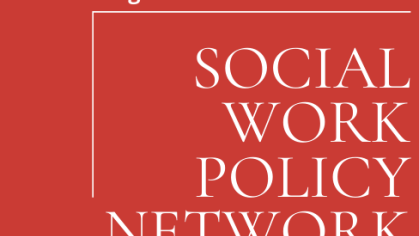By Rodrigo Cardenas, MSW Class of 2021
Originally published in the March 2021 issue of NASW-NJ's FOCUS Magazine
As an MSW student focusing on a Management & Policy Specialization, I have gained substantial knowledge and insight through my unique field placement in a non-traditional social work setting. Growing up in a family organized around social change, justice, and equality inspired me to become a social worker. When I initially enrolled in college, I was unfamiliar with the concept of macro social work. I just knew I wanted to help people, facilitate change, and deliver hope to those who need it.
Looking for a masters level field placement— particularly a macro-focused placement—in the midst of a pandemic was a challenge. At first, I was hesitant; but I soon realized an increasing number of organizations that had closed their physical locations due to the pandemic were turning to virtual internship opportunities. Through dedication, determination, and research, my search evolved and eventually led me to a remote internship working in Health Equity and Patient Advocacy with a major pharmaceutical company.
In this position, I have had the opportunity to learn about and participate in efforts to make access to my organization’s medications, programs, and services more equitable. We raise uncomfortable questions, such as:
- Why does the organization lack diversity in patients enrolled in its clinical drug trials, when many who will need these drugs are minorities?
- Why are social determinants of health not a priority— or notoriously underfunded—when it has been proven that attention to these issues improve health outcomes?
The objectives of the work I am engaged in are to promote and seek improvement in the quality of care that patients receive. At the organization where I intern, this means focusing on supporting patient organizations, professional societies, and communitybased programs and expanding research in the areas of oncology, hematology, immunology, and cardiovascular disease. This includes the application of specific anti-racist frameworks and screening tools designed to improve overall health outcomes in populations disproportionately affected by serious diseases—addressing injustices and differences in health among various groups defined socially, economically, demographically and geographically.
COVID-19 has forced organizations to reconsider how they work with interns and created some interesting new opportunities if you look in the right places. And modern technology—with almost everything accessible virtually—has given students around the globe the opportunity to gain the experience needed for their careers in new and different ways. With the right planning and management, many internships can become a virtual or remote placement. This is particularly true for macro social work placements in non-traditional settings, such as the one I obtained.
Virtual field placements—while not what you may have been expecting in an internship—should not be feared. I have discovered far more pros than cons from my remote/virtual internship. The office is anywhere that includes a laptop with wi-fi access. I am able to easily communicate with staff via phone calls, email, instant messaging, chat rooms, web meetings, and so on. And I have been able to schedule my internship hours and activities in a way that allows me to maintain balance in my busy schedule.
I want to emphasize that being in a remote field placement does not mean your responsibilities, assignments, research and workload are going to be less than in a traditional internship. Please remember you are crucial to the mission of your organization— they bring on interns for a reason. You are also responsible for fulfilling all work assignments on time without physical oversight, reporting to virtual team meetings as required, maintaining constant communication with your supervisors, and meeting your internship hours as assigned by your academic liaison.
There are internship opportunities everywhere. Search and find the one that is best for you and fits your career goals and schedule. Prepare a wellwritten resume. Start by checking with your school’s career office for internships. Attend career fairs and networking events to learn about opportunities for social work students you may have never considered. Find a mentor and expand your networking resources.
My current internship has been an unparalleled pleasure. It has been an honor to participate in an area where the contributions of social workers are less frequent, if not completely absent. Major companies are in need of social workers to help connect communities with the company’s products and resources. Additionally, we can bring our social work knowledge of the human condition to be a voice for social justice, equity, and ethics that many companies are seeking at this time.



